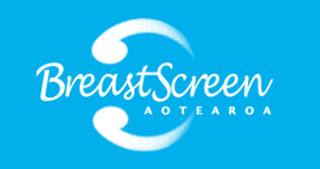- Home
- News
- Screening Matters, Issue 48, October 2014
- Position statement recommends women participate in BreastScreen Aotearoa
News
- Screening Matters Newsletter
- April 2019
- April 2018
- December 2017
- August 2017
- April 2017
- December 2016
- October 2016
- March 2016
- November 2015
- August 2015
- June 2015
- April 2015
- February 2015
- December 2014
- October 2014
- August 2014
- June 2014
- April 2014
- February 2014
- December 2013
- October 2013
- August 2013
- June 2013
- April 2013
- February 2013
Screening Matters
The National Screening Unit newsletter
In this issue:
- Rome hearing well, couldn’t wait to start school
- Chloe’s experience highlights the importance of HPV vaccine, regular smears
- Position statement recommends women participate in BreastScreen Aotearoa
- Communicating abnormal cervical smear results
- Disclosing NCSP participant information
- The importance of quality ethnicity data
- Feedback sought on Cervical Screening Awareness Month
Position statement recommends women participate in BreastScreen Aotearoa

The position statement recommends eligible women participate in BreastScreen Aotearoa (BSA) because, for most women, the benefits of participation outweigh the harms. Screening mammography is the only proven public health intervention for reducing mortality from breast cancer.
BSA Clinical Leader Dr Marli Gregory says the position statement examines the recent major international reviews of mammography screening and discusses known harms.
‘Screening tests carry a risk of false negative or false positive results. The position statement describes these and other potential harms associated with breast screening, including over-diagnosis. These harms are not new and have been previously considered by the BSA programme.’
The position statement was reviewed by the National Health Committee (NHC), an independent statutory body charged with prioritising new and existing health technologies and assisting the health and disability sector to spend its funding in the most effective way.
‘The NHC view is that the NSU’s position statement offers a balanced assessment of the harms of breast screening and may help clarify the large amount of sometimes contradictory information that has recently appeared.’
Dr Gregory says the NSU is committed to ensuring women have full and impartial information about the benefits and harms of breast screening in order to be able to make informed decisions about participating in BSA, and the position statement will help health professionals in their conversations with women about breast screening.
‘It will be supported by a review of BSA materials to ensure both benefits and harms are adequately explained in all materials. The NSU is working to ensure health professionals in primary care are aware of the position statement.’
The position statement is available here.
To receive the Screening Matters newsletter by email, fill out our sign-up form.

